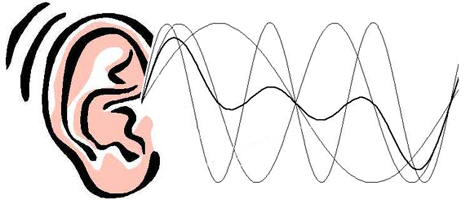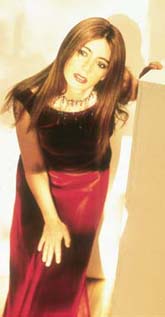
“Let go of the ear, and the whole universe is nothing but the ear.”
- Daido Loori Roshi, 21st century Zen Teacher
Encountering genius, unique talent or exceptional skill can leave one awestruck in much the same way that experiencing natural wonders does.
In either case, our consciousness takes a quantum leap into depths of being - parts of ourselves that have always been there but were previously inaccessible. Awe liberates by knocking us out of the stupor of our lifelong conditioning - it is a function of both religious practice and art. Literature, the visual arts, theater and dance are all vital to the enrichment of human experience..
But it is music by its very nature- sound surrounds and permeates- that most immediately, powerfully and profoundly impacts and dilates our cognitive capacities. The “sound of the unstruck” is the cosmic seed in the Hindu concert-myth of creation; descriptions of enlightenment often contain passages about hearing this primal, waking sound. Between cradle and grave, for most of our earthbound ears it is human-made music that attunes us, if only momentarily, to our eternal origins.
Have you ever come out of a concert hall thinking that surely great musicians are no mere mortals because they hear more subtly or intensely, perhaps more deeply or broadly, in any case extraordinarily?
 The thought arises with a particular poignancy when listening to Evelyn Glennie play, or pondering what she has accomplished.
The thought arises with a particular poignancy when listening to Evelyn Glennie play, or pondering what she has accomplished.
Her story has become something of a legend: from her childhood study of piano and clarinet in a remote farm in North East Scotland where there was not much music around; through her unexplained loss of “useful hearing” when she was 12, at which point she fell in love with the snare drum and recognized her vocation as solo percussionist; through her scholarship at London’s prestigious Royal Academy of Music where she graduated with an Honours Degree at the age of 19 and won multiple awards including the highest “Queens Commendation Prize” for all-around excellence; to her meteoric rise as a highly acclaimed performing artist who has held audiences the world over enthralled. She did not know until she was in London, after she had already made up her mind to become a full-time solo percussionist, that no other such person existed. Not knowing, not hearing what most citizens of the music establishment did - this lack of information would have stopped a lesser talent, a fainter spirit in its tracks.
For Glennie, the absence was a spaciousness happily unencumbered by convention, a stillness pregnant with extraordinary sound.
We quote from her autobiography “Good Vibrations” (1990):
“It didn’t disappoint me to learn that no surgery or hearing aid currently available was going to restore me to good hearing. I had learned to cope with my silent world, and felt that my own ways of listening to music gave me a sensitivity that I preferred to the ‘normal’ way of hearing that I had experienced as a child. Because I had to concentrate with every fiber of my body and brain, I experienced music with a profundity that I felt was God-given and precious. I didn’t want to lose that special gift.”
“Wondrous, wondrous!
The teaching of the inanimate is inconceivable.
If you listen with your ears you won’t understand.
When you hear the sound with your eyes, then you’ll know.”
- Zen Patriarch Dongshan, 9th century
- © Victoria B. Cajipe / FanFaire 2000

